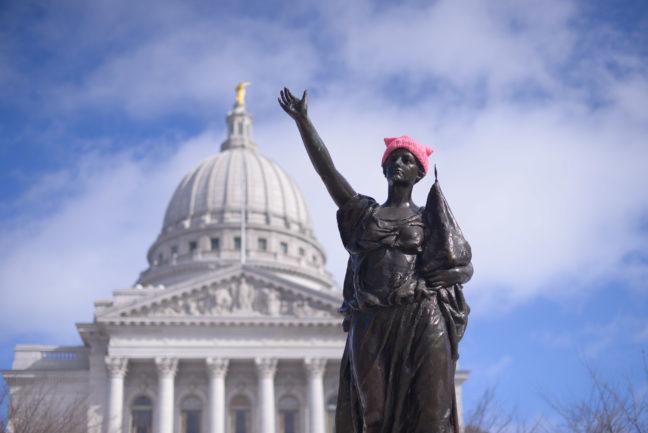April 2 was a momentous day for Madison.
We elected Satya Rhodes-Conway, our city’s second-ever female mayor and first openly gay mayor.
In District 8, we elected Avra Reddy, the district’s first female alder in more than 20 years and the first woman of color to ever represent the district.
For the first time ever, Madison’s school board will be comprised entirely of women.
After the 2018 midterms, which saw the election of more women to U.S. Congress than ever before, including the country’s first Native American congresswomen, first Muslim Congresswomen and youngest ever Congresswoman, one thing is clear: Women are here to stay in politics.
The importance of this increased commitment to diversity in politics cannot be overstated. For far too long, our politicians have fit into one monotonous mold, despite the fact that our citizens have not.
Increasingly, America is becoming more diverse, and our political representation needs to catch up with that trend.
Electing a diverse panel of representatives is vital to the health of our democracy and our citizens, so much so that we need to actively seek it out. It is not good enough to say we’re “colorblind” or say we’re “not voting based on gender” and then hope that the same methods we’ve used in the past will churn out different results.
Recent elections brought major milestone for female representation. But the fight is not over yet
Our current democratic system is designed expressly to silence people of color, women, LGBTQ+ people and anyone else who doesn’t fit the historical mold of a political leader. So we must make an active choice for diversity. We need to actively choose to support the voices of those historically pushed aside, marginalized and silenced. It’s not good enough to passively say we’ll listen once they start talking.
They have been talking.
Women have been talking. People of color have been talking. Native people were talking long before American democracy was even created. We just haven’t been listening.
The election of such of a diverse panel of women into the Madison political scene is a huge step. But it’s just the start.
We need to hold our politicians accountable for the goals they set out, create room for them to develop policies which serve marginalized communities and work with them to continue the progress that has already been made.
These elections didn’t happen in a vacuum — they were made possible by generations of people working to uplift historically silenced communities, and we have a duty to build upon that progress.
Intersectional identity politics are valid and important, and deserve to be recognized because they force us to actively address the issue of diversity. We must be conscious in our actions to address racism, sexism, homophobia and every other form of discrimination in this country — it is simply not enough to passively accept things as they come.
So kudos to Reddy, Rhodes-Conway, Cristiana Carusi, Ali Muldrow and Ananda Mirilli. But let’s not waste time high-fiving — there’s more work to do.
Cait Gibbons ([email protected]) is a junior studying math and Chinese professional communication.














